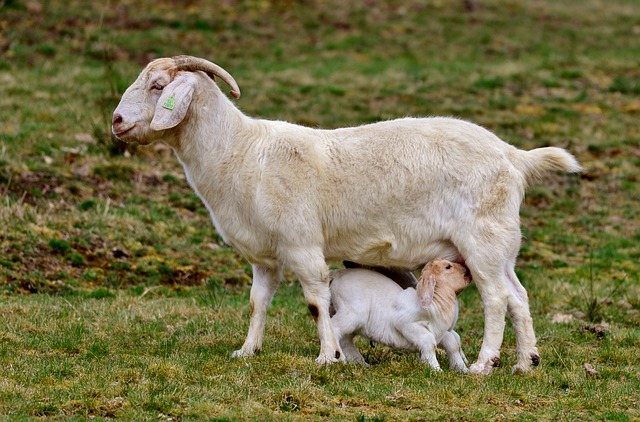Dengue fever is one of the major health problems in India and worldwide as there is no effective therapy for this ailment. However, goat milk is attaining much popularity in controlling adverse health conditions which may occur due to dengue fever. Aedes mosquitoes transmit this viral fever to humans. Unhygienic conditions near nook and corners of the locality may boost the growth of such carrier mosquitoes. This disease is common in tropical and sub tropical countries such as India and other Southeast Asian nations. Each and every aged group person is affected by this disease but children under 15 yrs are more susceptible to such disease. Monocytes, macrophages, and neural cells have the receptors for virus E- protein binding. Rapid decrease in platelet counts have been seen in the case of dengue fever. The main symptoms include high body temperature, redness in eye, cold clammy skin and restlessness. In acute cases platelet count may fall below 20, 000 in which platelet transfusion may be needed.
Importance of Goat milks’ composition
Goat milk helps in maintaining body fluid balance as it helps in metabolism through its constituent minerals such as iron, calcium, magnesium and phosphorus. Goat milk has been found helpful in many other ways to its consumers through better nutrient utilization, and digestion. By virtue of this digestive property the human babies, whose mother is unable to nurse, are provided with the goat milk. Major difference in goat and cow milk is due to the presence of small fat globules which makes goat milk easily digestible and also 27% more selenium is found in goat milk than cow milk. Furthermore, goat milk is used as substitute for person having sensitiveness towards cow milk allergens. However, there may be several factors such as breed, stage of lactation, parity, season, nutritional and environmental conditions which may affect the composition of goat milk.
Role of goat milk in controlling dengue fever
Selenium is one of the most necessary trace minerals having role in about 25 proteins. Selenium containing proteins, called selenoproteins, acts as enzymes which protects from free radical cellular actions by virtue of its anti-oxidant properties. Also, it helps in blood clotting regulation in the body. It has anti clotting factor. Selenium also prevents replication of virus. Goat milk has considerable selenium in it.
Goat milk added with cow or buffalo milk may help in production of value added products as well. The range of products which may be obtained through use of goat milk may include dried milk products, ghee, dahi, yogurt, khoa, channa, and cheese. This products range may vary further more of different types depending upon the geographical needs and preparations.
Preventive measure to combat dengue fever
- Cleanliness should be maintained in the locality in every possible ways by proper disposal of different wastes.
- Keep water storage containers clean and covered.
- Suspected person for dengue fever should be isolated for a minimum of 5 days.
- Prompt medical advisory should be received if fever occurs.
Conclusions
Main component of goat milk for dengue is Selenium (Se). Selenium deficiency and decreased platelet count are the indicative clinical symptoms of dengue fever. In addition to this, goat milk has been found helpful in digestion and metabolic assimilation of different minerals. Goat milk and milk products are very helpful in treating dengue fever as they may directly modulate the human immune system. It can be said that dengue fever may be treated with the usage of goat milk and its different products. That’s why the goat milk is getting attention in cases of dengue fever.
